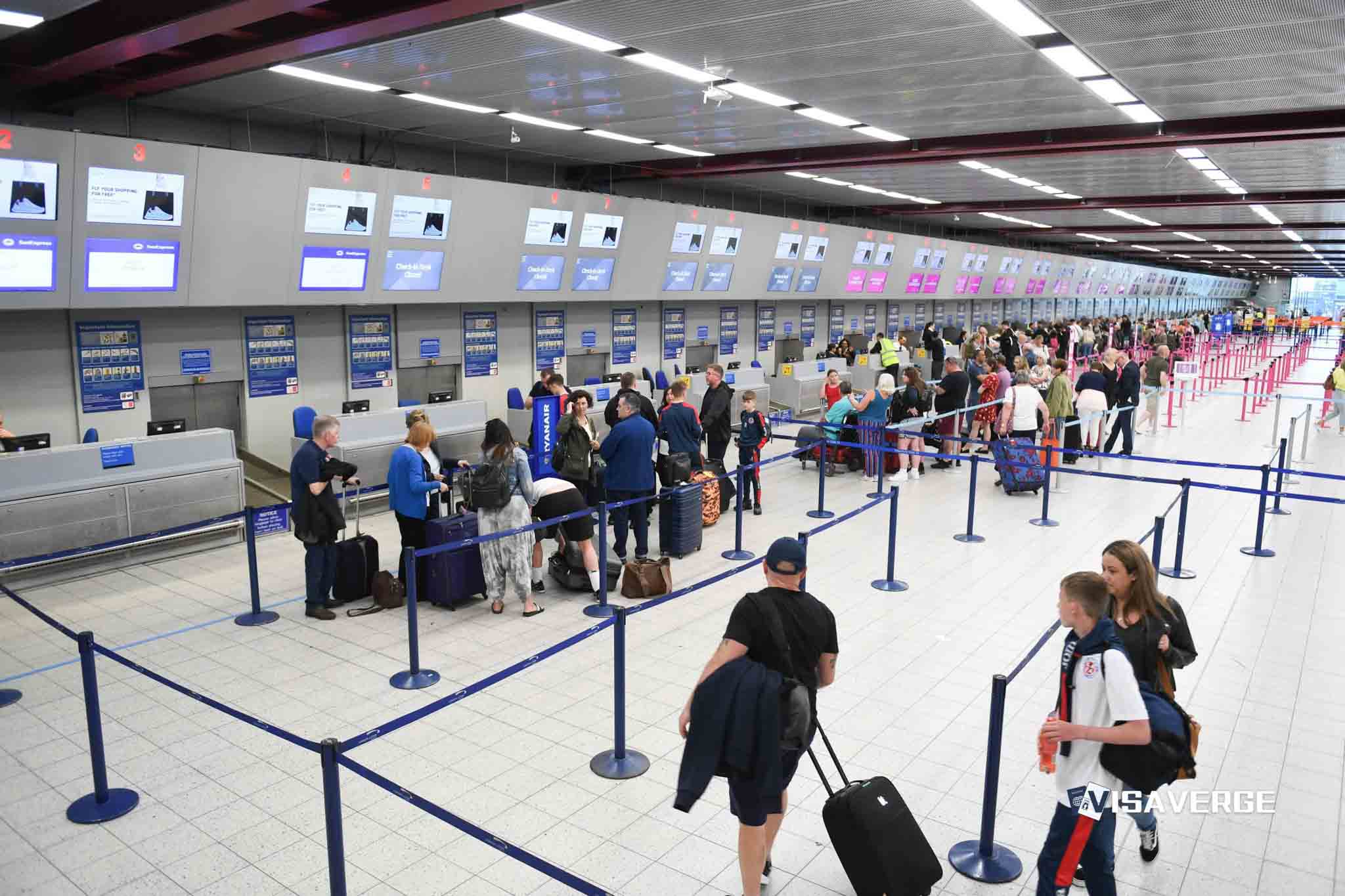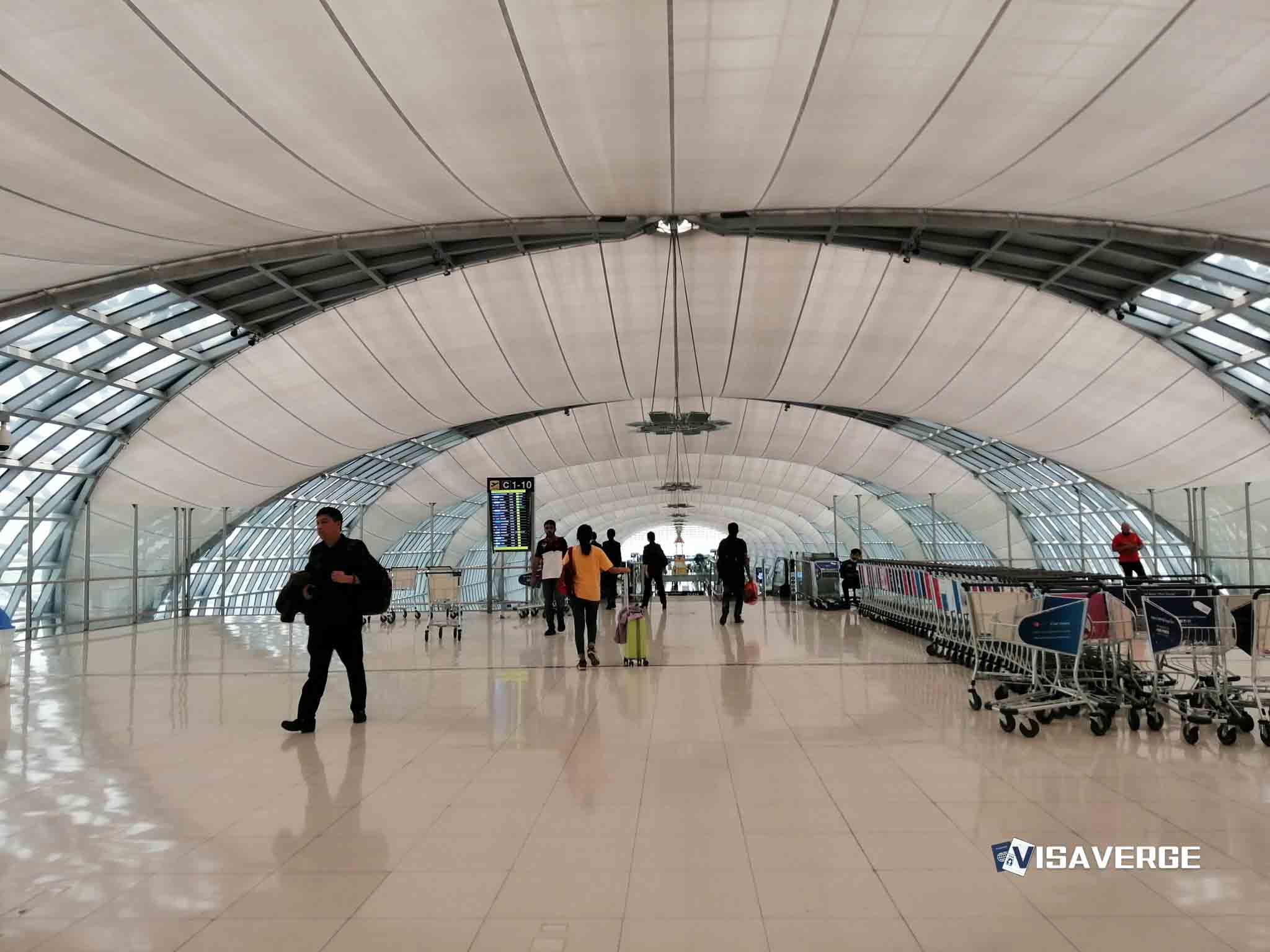Key Takeaways:
- Foreign workers in P.E.I. hunger strike against a significant reduction in provincial nominations for permanent residency.
-
The government cut nominations by 25%, focusing on high-demand sectors, causing unrest among sales and service workers.
-
Despite community support, the government remains firm, leading workers to consider escalating their protest to a dry hunger strike.
Why Are P.E.I. Foreign Workers on a Hunger Strike?
Foreign workers in Prince Edward Island (P.E.I.) have taken a dramatic step to voice their discontent with the province’s immigration policy. As of May 27, 2024, these workers have been on a hunger strike for five days, protesting outside the George Coles Building in Charlottetown.
“The protest began on May 23, with more than a dozen protesters participating,” said Rupinder Pal Singh, one of the protest organizers.
But what prompted this hunger strike?
What Changes in Immigration Policy Sparked the Protest?
In February 2024, the P.E.I. government announced a 25% reduction in the number of provincial nominees for permanent residency. The intention behind this policy shift was to address housing pressures and the rapid population growth, particularly those in the sales and service sectors.
Key Aspects of the Change:
– 25% Reduction in Nominations: The number of people nominated for permanent residency through the Provincial Nominee Program (PNP) has decreased substantially. Last year, there were 855 nominations, but this year the number has fallen to 215.
– Focus on High-Demand Sectors: The nominations are now concentrated on critical sectors such as healthcare, trades, and childcare. The government intends to fill labor shortages in these areas while balancing the province’s resources.
How Has the Community Reacted?
The hunger strikers have faced harassment and physical threats. According to Singh, “people have been throwing cans, glasses, and beer bottles at us.”
Despite these challenges, the community has shown significant support. Over 40 employers have written letters to the premier, and various community and labor groups have signed a petition in solidarity with the workers.
However, the provincial government remains unresponsive to the protesters’ demands. In a statement, officials emphasized that the 25% reduction is a temporary measure to allow public services and infrastructure to catch up with population growth.
What Are the Workers Demanding?
The main demands of the foreign workers are clear:
– Exempt foreign workers who arrived and worked in P.E.I. before the policy changes from the new rules
– Reinstate nominations for sales and service workers under the Provincial Nominee Program (PNP)
What Might Happen Next?
The situation is escalating. Protesters have warned that if their concerns are not addressed, they will escalate to a dry hunger strike, abstaining from both food and liquids. This step would pose a significant health risk to those involved.
How Can This Impact Local Businesses and Community?
This policy change has alarmed local businesses, especially those in the sales and service sectors. Employers fear significant disruptions in operations and difficulties in retaining employees.
“The provincial government needs to reassess this plan,” said several chambers of commerce.
What Long-Term Changes Are Proposed?
The government encourages immigrants whose work permits are set to expire to enroll in training programs for in-demand occupations such as healthcare and construction. Officials insist these changes are temporary but haven’t provided a timeline for a possible reversal.
For more detailed information, you can visit the official Government of Canada immigration page.
What Are the Official Steps Being Taken?
The P.E.I. government has been dialoguing with foreign workers but has yet to commit to any immediate policy changes. They have stressed the need to focus on high-demand sectors and suggested that workers consider retraining in these areas.
Are There Any Solutions for Affected Foreign Workers?
Affected foreign workers can look into:
– Enrolling in training programs for high-demand sectors
– Joining community and labor groups for collective bargaining
– Seeking legal advice to explore all possible avenues for retaining their residency status
How Can the Community Support the Protest?
Community members can support the protest by:
– Writing letters to local officials advocating for policy reassessment
– Joining community groups and signing petitions in support of the workers
– Raising public awareness through social media and public forums
Conclusion
The hunger strike by foreign workers in P.E.I. highlights the tensions arising from recent immigration policy changes. While the government aims to balance population growth with public resources, affected workers and local businesses are bearing the brunt of these changes. The situation underscores the need for clear, fair immigration policies that consider the contributions and needs of all community members.
This story continues to unfold, and it remains to be seen how the provincial government will respond to the growing calls for policy reconsideration. For now, the commitment and resilience of these foreign workers serve as a powerful reminder of the human impact of immigration policies.
Learn Today:
Glossary of Immigration Terms
- Foreign Workers:
Individuals who are employed in a country where they are not citizens, typically on temporary work permits, and may face challenges related to employment rights and immigration policies. -
Provincial Nominee Program (PNP):
A Canadian immigration program that allows provinces and territories to nominate individuals for permanent residency based on local labor market needs and economic priorities. -
Permanent Residency:
A status that allows an individual to live and work in a country indefinitely, without being a citizen, and often provides various rights and benefits similar to those of citizens. -
In-Demand Occupations:
Job sectors experiencing labor shortages, which are prioritized in immigration policies to fill gaps in the workforce, such as healthcare, trades, and childcare in this context. -
Temporary Measure:
A policy or action taken for a short period, intended to address immediate issues or provide a stopgap solution until a more permanent approach is implemented. In this case, the policy is designed to let public services and infrastructure catch up with population growth.
This Article In A Nutshell:
Foreign workers in P.E.I. are on a hunger strike to protest a 25% reduction in permanent residency nominations. They demand exemptions for those already working in the province and reinstatement of nominations for sales and service roles. The government’s policy shift aims to relieve housing and population pressures.
— By VisaVerge.com
Disclaimer: If you use any information from this article, link back to the original article URL on VisaVerge.com. Thank you for respecting our content and giving proper credit.







